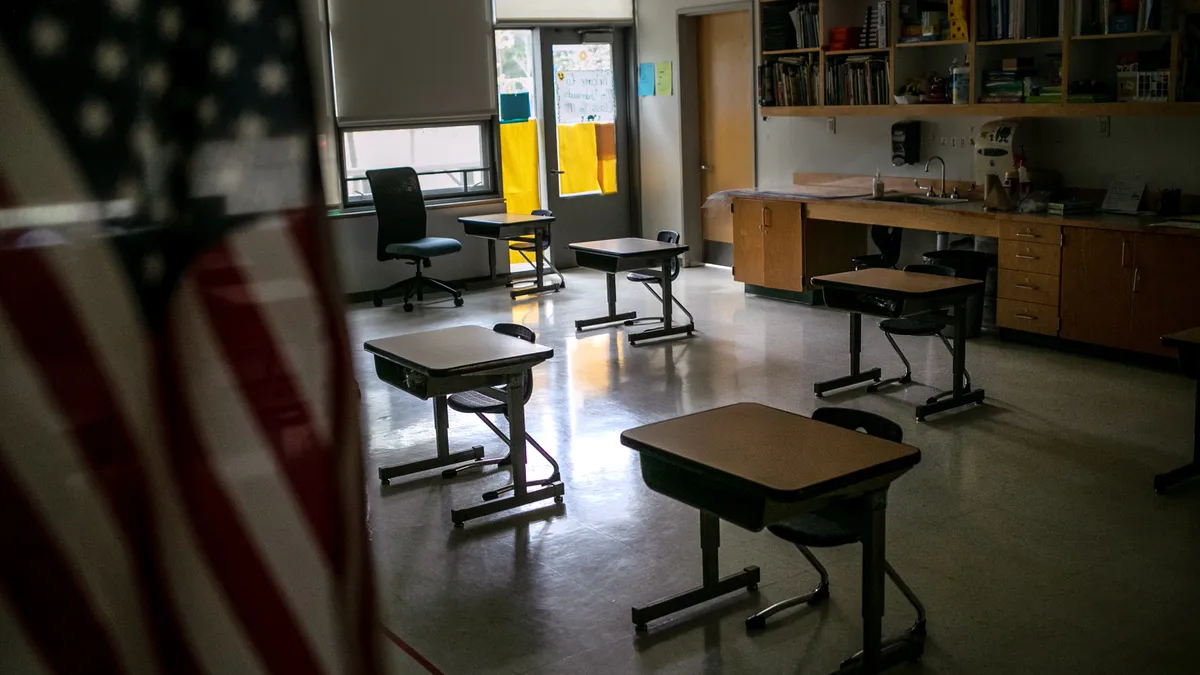Dive Brief:
- Should parents try to get schools to adjust curriculum if they object to certain instructional material? In a new poll by research and analytics company YouGov America, 56% of Republicans and 31% of Democrats said yes.
- When presented with an imagined scenario where the parents of all students in a classroom disagree with curriculum materials, more than half, or 57%, of adult U.S. citizens surveyed by YouGov said that content should be removed.
- Additionally, 42% of adult U.S. citizens surveyed said a parent should try to change school curriculum if they don’t agree with certain materials.
Dive Insight:
While curriculum continues to be a partisan issue nationwide, YouGov found that, regardless of their political beliefs, respondents were most likely to say the onus for curriculum decisions should fall on the school district.
For Republicans, the top three decisionmakers over curriculum should be the school district (27%), the state government (21%) and school administration (17%), according to YouGov. Democrats also said the school district should have the final say in curriculum decisions, at 20%, followed by school administration (19%) and the federal government (16%).
Overall, a quarter of U.S. adult citizens said the school district should be responsible for curriculum changes, with state government and school administration tied as a second choice at 16%. Only 8% said teachers should have the most responsibility for curriculum.
In the imagined scenario where the parents of every student in a classroom disagree with the materials taught, 74% of Republican respondents said the material should be removed from the curriculum versus 45% of Democrats who said the same. If the parents of half of the students in a classroom disagreed with what’s being taught, 18% of Democrats and 43% of Republicans said the content should be removed.
Partisan divides were the least prevalent in a scenario where the parents of only one student disagreed with learning content, with 11% of Democrats and 12% of Republicans favoring removal of the material.
As policy efforts grow, particularly in red states, to ban books and censor school curricula on topics related to race or racism and gender and sexual orientation, blue states and Democrats at the federal level are beginning to push back in partisan debates over what is taught in schools.
But as politicians on both sides of the aisle fight over curriculum at the state and federal levels, the YouGov survey highlights that most adults prefer that school districts handle the matter rather than policymakers.
In 2022, the number of curriculum censorship bills that proposed punitive measures grew. Nearly all of these measures were brought forth by Republicans, according to PEN America, a nonprofit that tracks the issue.
In a time when districts are struggling to staff teachers, an October report by the American Association of Colleges for Teacher Education also suggested such curriculum censorship bills could dissuade prospective teachers from joining the education field.







 Dive Awards
Dive Awards






